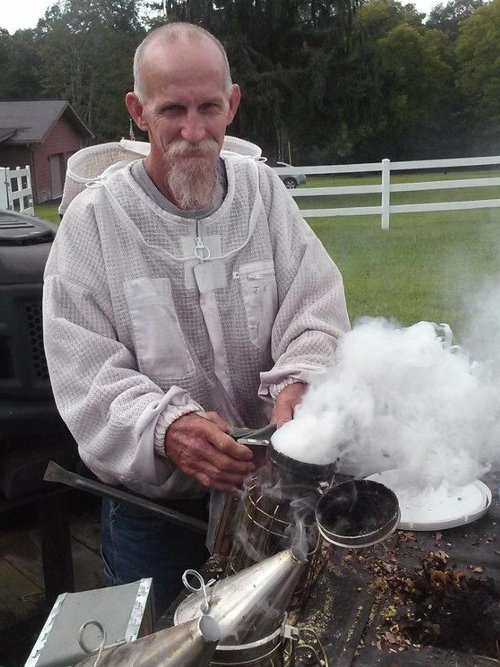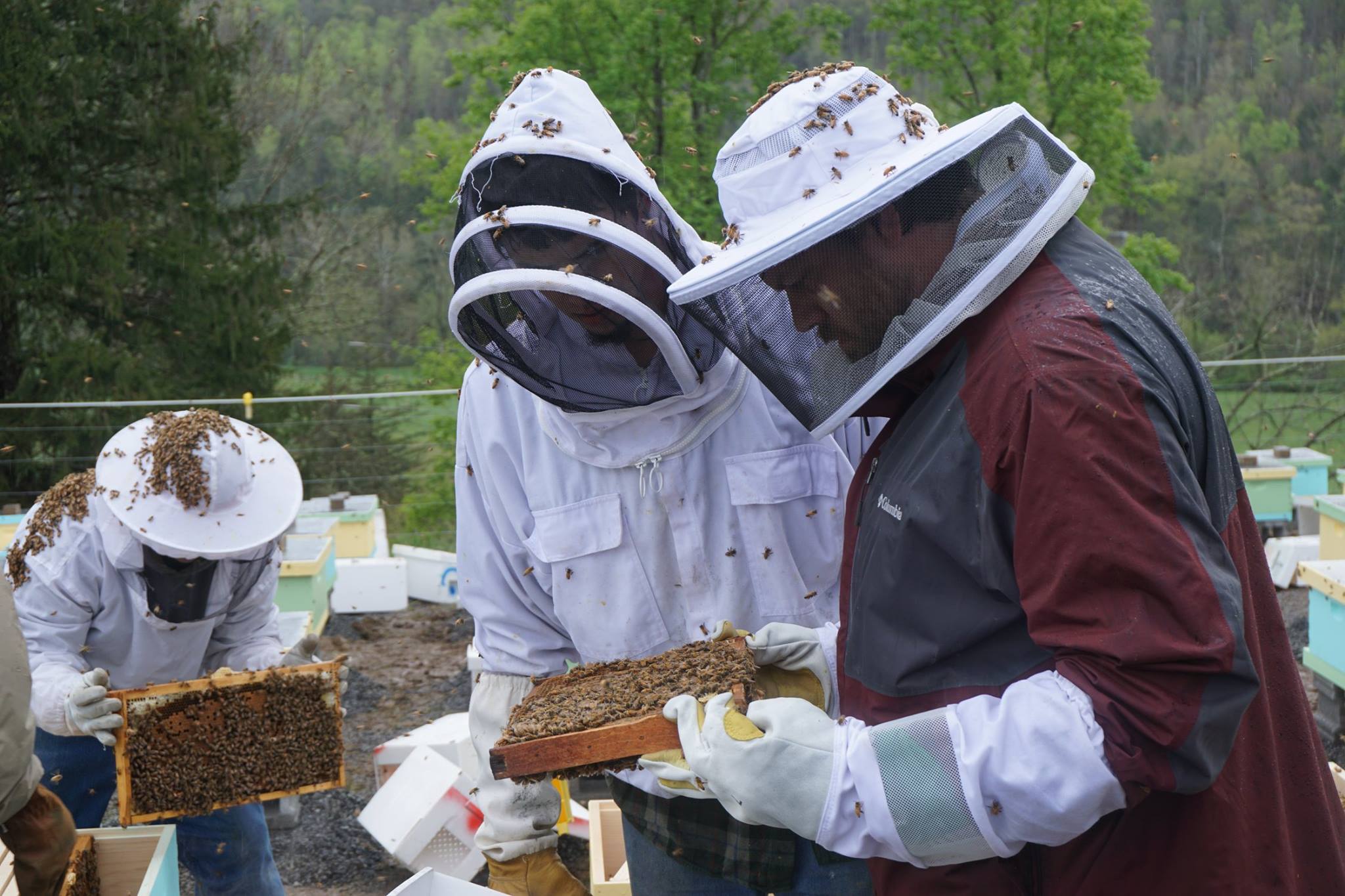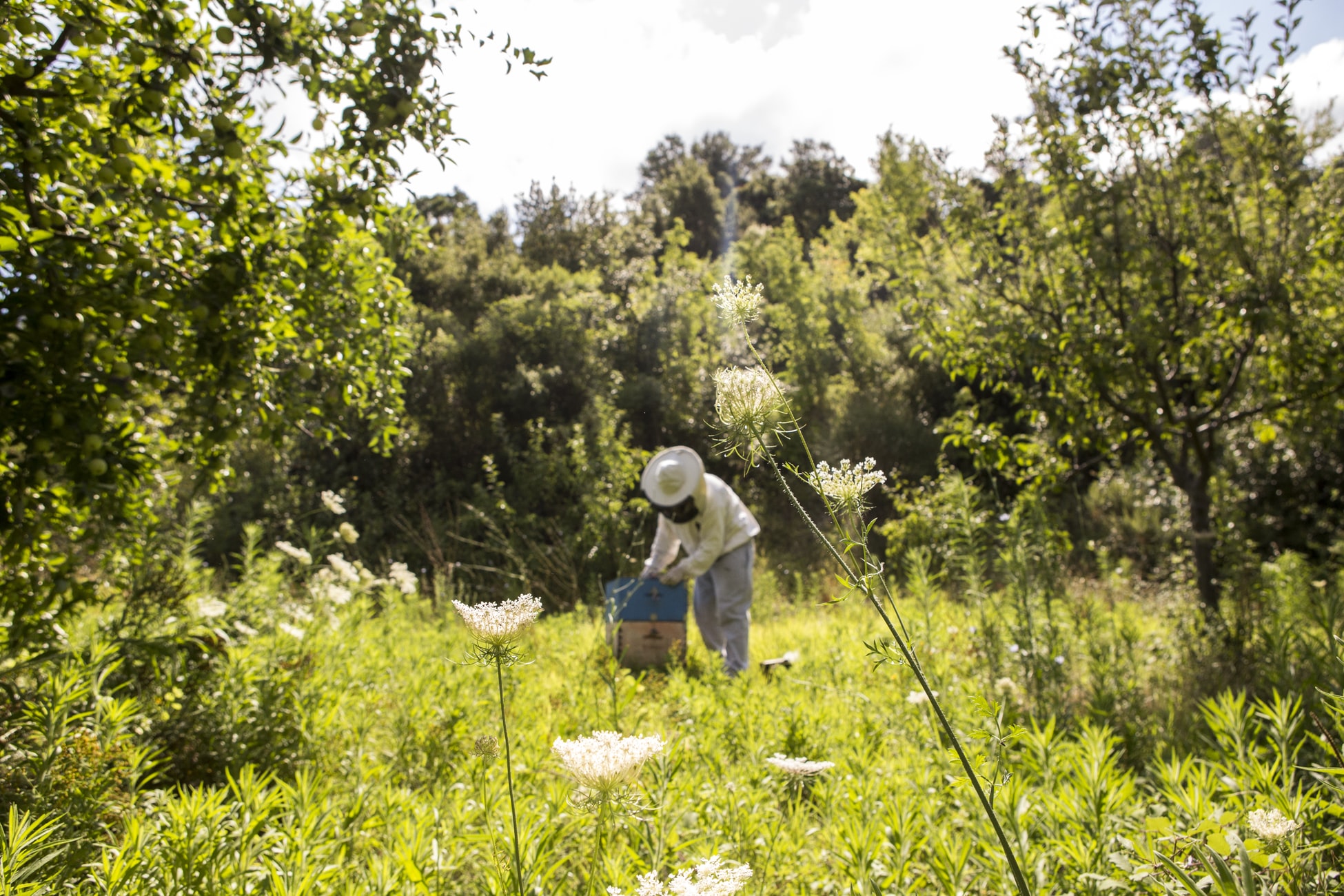- Better Society -
- 4mins -
- 247 views
Unemployed Appalachian Coal Miners Are Being Retrained As Beekeepers
A new non-profit is offering free beekeeping classes, bees and equipment to redundant coal miners in West Virginia, improving the local economy and protecting threatened bee populations.
Non-profit teaches former miners how to keep bees as a way to supplement their income
The US coal industry slump has seen the redundancy of nearly 100,000 miners in West Virginia. But a new nonprofit hopes to bring a new, more environmentally-friendly industry to the region: beekeeping.

Beekeeping provides a decent supplemental income and helps bee populations
The declining US coal industry has meant the redundancy of nearly 100,000 miners in West Virginia. But a new non-profit, the Appalachian Beekeeping Collective, hopes to bring a new, more environmentally-friendly industry to the region: beekeeping.
The charity was founded with funds from a $7.5 million settlement from a lawsuit against coal mine company Alpha Natural Resources for violating the Clean Water Act.
The money has been used to fund environmental restoration projects and to develop sustainable economic opportunities in the once-thriving region that now has the highest unemployment rate in the country.
Graduates of the free “Introduction to Beekeeping” classes receive free or reduced-cost bees and equipment, and have access to ongoing training and mentorship. They can opt to maintain between two and 20 hives.
The trained beekeepers harvested their first honey this spring 2019. The non-profit collected, bottled and sells the honey for them, paying them market rate; currently $7 a pound (€15/Kg).
With the potential to earn earn over $700 per hive, 20 hives could earn $15,000 (€13,477/£11,655) per season.
The organisation also offers training in making candles, lip balm and other beeswax products for additional income opportunities.
Although very part-time work from home, it provides a decent supplemental income for people struggling to make ends meet.
Plus, beekeeping helps ensure the survival of threatened bee populations by giving them a place to live, and improves the health and biodiversity of local ecosystems.
Source: ReturnToNow.net

Entire communities were affected by mine closures
The collective offers beekeeping training to displaced coal miners and low-income residents of mining communities throughout the state, with the goal of helping them find new job opportunities and generate supplemental income.
"It wasn’t just the miners that lost their livelihoods when mining jobs disappeared; other industries started to wilt, too, and entire communities were affected," Cindy Bee, a master beekeeper with Appalachian Headwaters told npr.org "We’re doing something that can boost the town up."
Those who complete the free Introduction to Beekeeping classes receive equipment and bees free or at a reduced cost and have access to ongoing training and mentorship. Partners maintain between two and 20 hives.
In a region where jobs are scarce and more than 28% of residents live in poverty, opportunities for additional income are welcome. And beekeeping does leave plenty of time for other work. The training is open to all West Virginia residents who are at or below the federal poverty rate.
Source: npr.org


